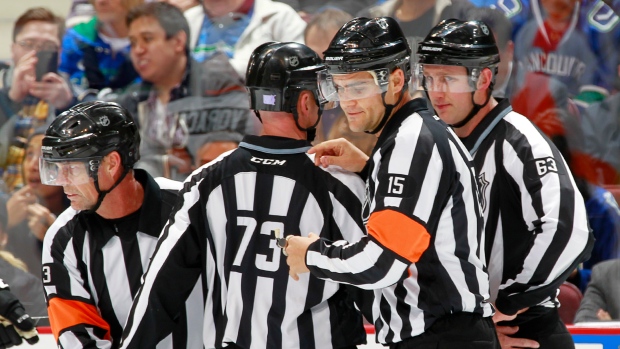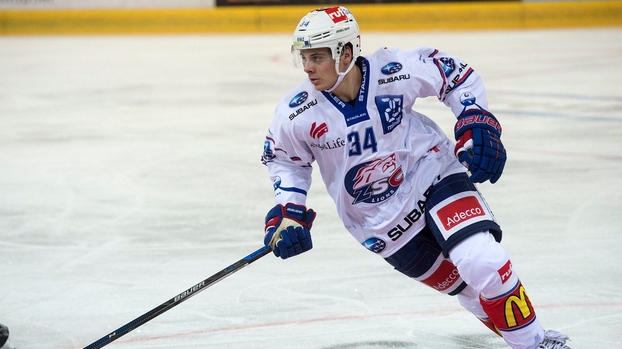May 15, 2016
Thumbs to NHL supporting referees, Coyotes' interest in Matthews
TSN's Dave Hodge gives a thumbs up to the NHL supporting its referees in not suspending Ryan Callahan and thumbs down to any trade offer the Coyotes might make for Auston Matthews.
By Dave Hodge

I don’t know if Ryan Callahan or anyone else needed to be suspended for infractions committed in Game 1 of the Tampa Bay-Pittsburgh Eastern Conference final, but I’m willing to give “thumbs up” to the lack of supplementary discipline, simply because that is consistent with what was called on the ice by the referees.
The NHL, and other sports leagues, have gone much too far in correcting or criticizing calls made in the heat of the action. Those with the whistles are deemed to be competent or they wouldn’t be hired. They are trained to know the rules and to exercise good judgment. They need and deserve support if they are to maintain or improve a level of excellence. It is of no help to them, or to the league’s credibility, if they are continually second-guessed by the people who hired them.
Callahan received a five-minute penalty for boarding on a play that sent Pittsburgh’s Kris Letang to the dressing room for a short time. Callahan could have been kicked out of the game, but wasn’t. He could have been kept out of the next one, but he won’t be. I assume the NHL’s Department of Player Safety agreed fully with the refs’ assessment, but I’m here to suggest that if that hadn’t been the case, the league still should have closed the file on that incident.
It is time to officiate the game as it happens. Oh, what a novel concept! It is time to impose supplementary discipline that begins with verification of the call made on the ice and not blatant disagreement with the refs. It is time to support the logic in Pittsburgh coach Mike Sullivan’s position when he says, “We need to play and let the refs do their job and let the league do its job”.
On occasion, this will require acceptance of mistakes made by the striped shirts. Get rid of them if they make too many. Otherwise, let them do their work. Those in my profession, or in yours, would expect and deserve nothing less.

If the Arizona Coyotes are thinking clearly, they should declare that they have no intention of making a pitch to Toronto for hometown boy Auston Matthews.
Sure, it would be a nice story if a kid who grew up in Scottsdale could become the face of the re-organized Arizona franchise, but the only sensible way for that to happen disappeared when the Coyotes failed to land the number-one draft pick in the lottery.
Getting Matthews via trade, if it were remotely possible, would require a completely irrational offer, not the kind you want to make if details managed to leak out. No other team is about to lose its mind over Matthews, for as good as he might be, he’s not about to make the NHL forget who Connor McDavid is. Matthews doesn’t become a better player if he’s a Coyote. Arguably, it could be the worst thing for him. He doesn’t need to be a saviour. And no, he won’t be that in Toronto. The Leafs’ saviours all wear suits and have offices.
Drafting seventh, Arizona can land much-needed help on defence. Drafting first, they’d almost certainly be without Oliver Ekman-Larsson, and more, and what would their defence look like then?
With increased responsibilities for roster decisions, Arizona coach Dave Tippett knows what he’s got and what he needs, and it would be surprising if he thought the Coyotes could afford to make the depth chart look a lot thinner.
New general manager John Chayka comes with a strong belief and background in analytics. No amount of research would support a trade for Matthews. A blockbuster deal might only appeal to ownership, and as it happens, the new Coyotes’ president is Gary Drummond, from the ownership group.
So, there’s a chance, you say. “Thumbs down” if the Coyotes aren’t smarter than that.

